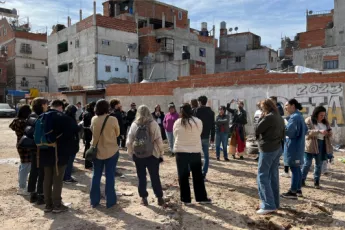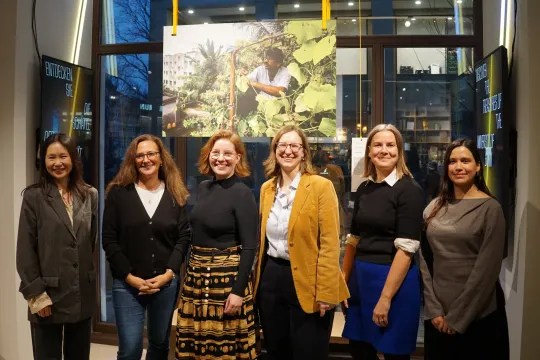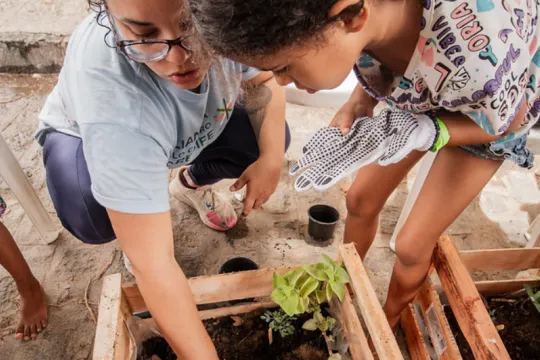
Participants visiting Barrio 20 in Buenos Aires. © IIED-AL
Cities play a key role in climate action. However, due to the magnitude and urgency of the challenges, traditional responses are insufficient to achieve the required change.
There is a need for sustainable transformations that represent deep and systemic changes. Such changes arise from collaborative processes where different actors plan and implement actions together, triggering changes in mindset. This type of transformation is especially necessary in contexts marked by urban informality. Without systemic planning processes involving local governments and low-income urban communities, mitigation investments in urban environments end up exacerbating socioeconomic and environmental injustices in the cities. However, there are only a few examples of decarbonization initiatives that simultaneously tackle poverty reduction, access to services, infrastructure and housing, and equity and social inclusion.
With this in mind, on September 14, 2023, within the framework of the Transformative Urban Coalitions (TUC) project, we held a meeting to discuss the implementation of climate action in vulnerable contexts, with a focus on the role of participation and social justice.
Coming together in this setting allowed participants to share experiences involving the integration of climate action in contexts of urban poverty in Argentine cities, based on participatory processes. It also allowed participants to identify challenges and opportunities, as well as the contribution of participation to these experiences.
The meeting had two modules with presentations, which included the comprehensive slum upgrading of Barrio 20 (CABA) and the integration of climate change in the process, biodiversity in Rodrigo Bueno (CABA), the Claypole Habitat Project (Almirante Brown), urban agriculture and green belt in Rosario, urban natural reserves in Santa Fe, the inclusion of a climate change perspective in socio-urban integration projects in low-income neighbourhoods in Tucuman, and the integration and sustainability of green areas in socio-urban integration processes in Rosario. The presentations were followed by round tables where we delved into the actions or strategies that proved successful in integrating climate action, the participatory aspects that favoured this integration, and the lessons learned from the difficulties encountered and the strategies used.
Held at the FADU Collaboratory with the support of the Habitat and Energy Research Center (CIHE) and the University of Buenos Aires, the event was attended by more than 60 people, including IIED representatives, community and civil society representatives, Buenos Aires and Rosario municipal government officials, national government officials from the Secretary of Socio-Urban Integration, representatives of academic institutions and research teams from various projects.
The meeting ended with a guided visit to Barrio 20, where we passed the key landmarks of the neighborhood's slum upgrading process and the interventions carried out within the framework of TUC, learning about the experiences and receiving advice directly from the team and the community residents.

